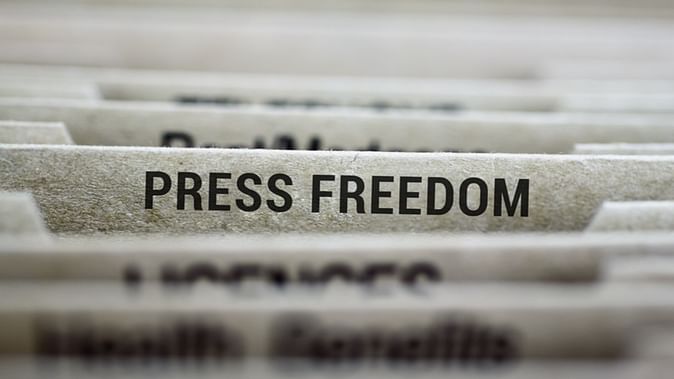
Image Source: amarujala
India, often praised as the world's largest democracy, has seen growing concerns about the state's seizure of the press and the subsequent silence surrounding it. The press, known as the fourth pillar of democracy, plays a crucial role in ensuring a transparent, accountable, and free society. However, recent events indicate a worrisome trend towards the suppression of press freedom by the state.
The Importance of a Free PressA free press is the cornerstone of any democracy. It serves as a watchdog, exposing corruption, holding the government accountable, and safeguarding the rights and interests of the people. Without a free press, citizens are deprived of unbiased information, which results in an erosion of democratic values and an increase in government impunity.
The State's Seizure of PressIn recent years, there have been numerous instances of the state clamping down on the press. Journalists critical of the government have faced intimidation, threats, and even physical attacks. Numerous media houses have been coerced into toeing the government line, resulting in self-censorship and a chilling effect on independent reporting.
One significant example is the arrest of prominent journalist Mr. X, known for his investigative reporting on government corruption. The authorities charged him with sedition, a move widely criticized as an attack on press freedom. This incident highlights the growing trend of stifling dissent and silencing critical voices in India.
The Alarming SilenceDespite the increasingly hostile environment for journalists, there is a concerning silence from various quarters. Civil society organizations, which traditionally champion the cause of free speech and expression, have not vocally condemned the state's actions. Politicians, too, seem wary of criticizing the government's suppression of the press, fearing repercussions or losing political favor.
The silence within the media fraternity itself is equally unnerving. Fearful of retribution, many journalists refrain from reporting on these incidents, resulting in a lack of awareness among the general public. Such self-censorship undermines the very essence of a free press and leaves citizens uninformed about matters of public interest.
The Consequences for DemocracyThe erosion of press freedom has severe consequences for democracy in India. Without a free press, citizens are denied access to unbiased information, leading to the manipulation of public opinion and a decline in informed decision-making.
The government's control over the press poses a threat to checks and balances, allowing the authorities to operate with impunity. It undermines the principles of transparency and accountability, crucial for a functioning democracy.
UPSC Aspirant Note: It is essential to understand the challenges faced by the press in India, as it is a current and relevant topic for the Union Public Service Commission (UPSC) examinations. Candidates should stay updated with recent events and be able to critically analyze the implications of the state's seizure of the press on democracy and governance in India.
ConclusionThe silence surrounding the state's seizure of India's press is a cause for concern. A free press is vital for the functioning of a democracy, and any attempts to stifle it undermine the democratic fabric of the nation. It is crucial for citizens, civil society, and politicians to raise their voices against the suppression of press freedom, ensuring a vibrant, independent press that holds power accountable and safeguards democratic values.